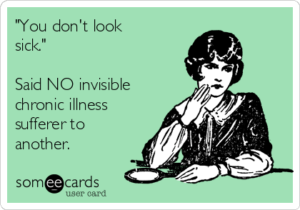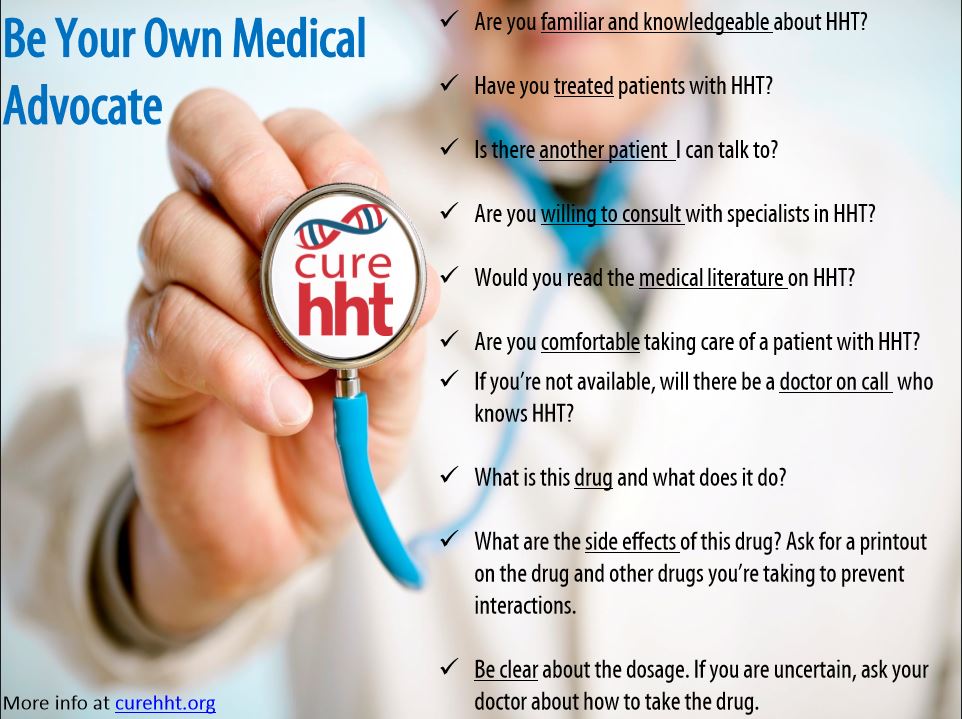Wait, what is HHT

It’s challenging carrying this rare genetic condition, HHT, through life. While this disorder has been relatively recognized for years in the medical community, it is mostly unknown to the general population. Likewise, it has no standard progression over the course of a lifetime.
When the flareups come, no one sees any outward signs. I imagine it is difficult to relate to this. Most serious conditions are accompanied with visible clues, or obvious manifestations. Because the outward signs of my HHT are few, I get a sense sometimes levels of concern from others are muted. Compassion sometimes requires clear signs of injury or threat.
The nosebleeds in my youth were relatively minor, but frequent. I could easily explain them away as something I’d inherited from my father. As for the PAVMs, no one saw me coughing up blood. No one saw me frightened by the next episodic intrusion to my peace. The frequency was always increasing. The fear was ever-present.
I developed a hardened attitude in regards to having multiple bleeding PAVMs. When I was questioned about my condition, I was forced to explain in detail something I’d rather handle with few words. There is always a requirement to expound on the nature of HHT and what it could actually mean. Although this condition possibly occurs as frequently as ALS, the general public appears clueless about HHT.
You have to cope with the circumstances you are facing, and you must calmly, repeatedly explain your condition–no, it is not cancer, but yes, it is serious.
So, not only do you have to explain to people around you, but to medical professionals who are unfamiliar with HHT. Did they actually have some training or is this their first encounter with the formidable condition? Do they know what medicines are not recommended for this condition? Wouldn’t it be nice to live in the moment of battle with HHT without having to be your own advocate and first line of defense?
A few years after my primary doctor took me on as a patient in his practice, he disclosed to me he had two other HHT patients in addition to me. The researchers postulate the occurrence of HHT in our population is approximately 1 in 5,000. I don’t think my doctor sees 15,000 patients, so are we underestimating? If the number of cases continue to rise, perhaps there will be a change in my lifetime when I will not have to explain HHT with every new medical episode. I won’t have to respond to, “Wait, what is HHT?”.

